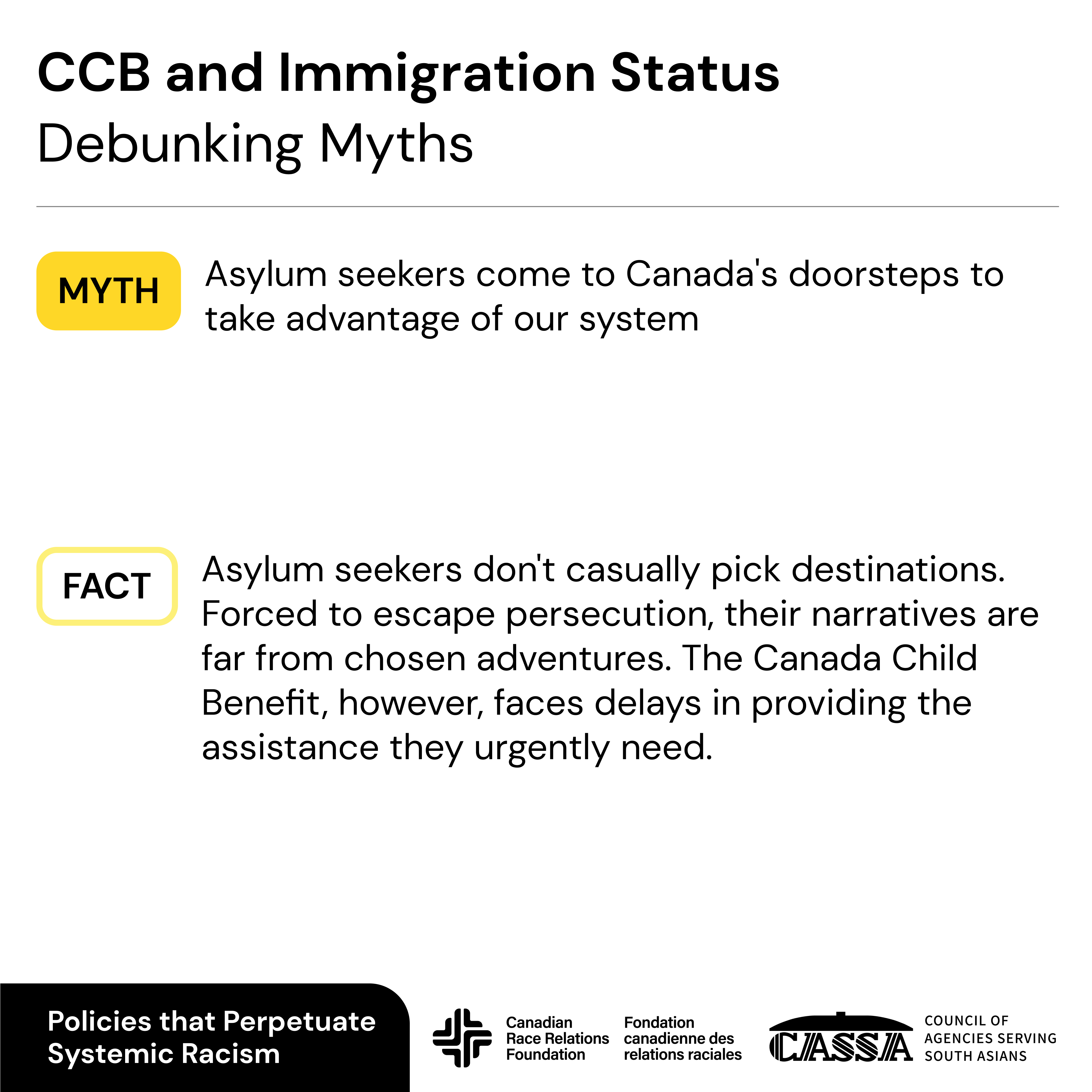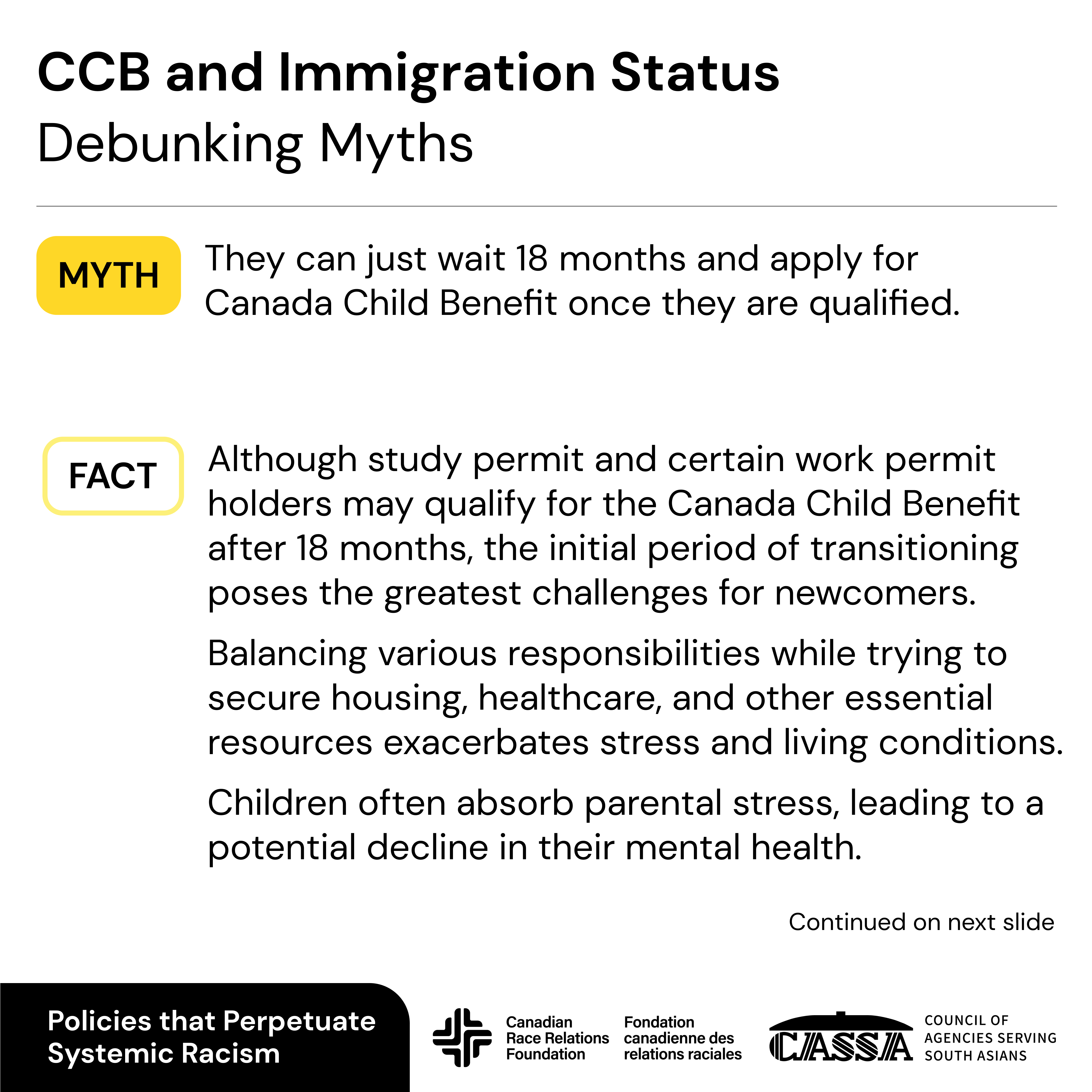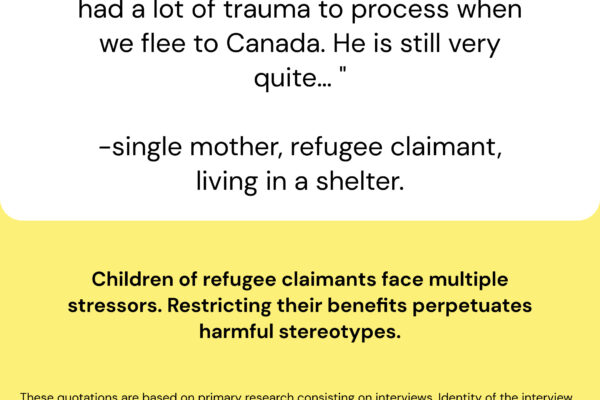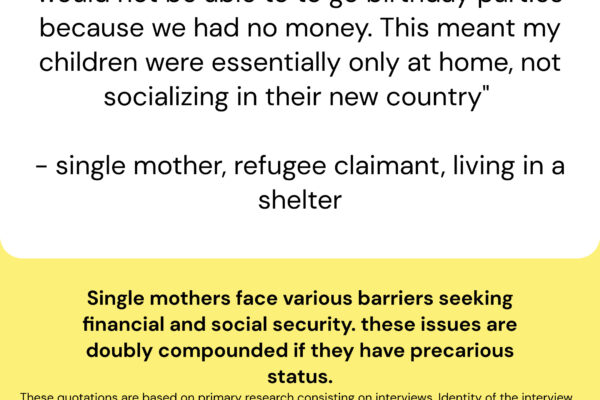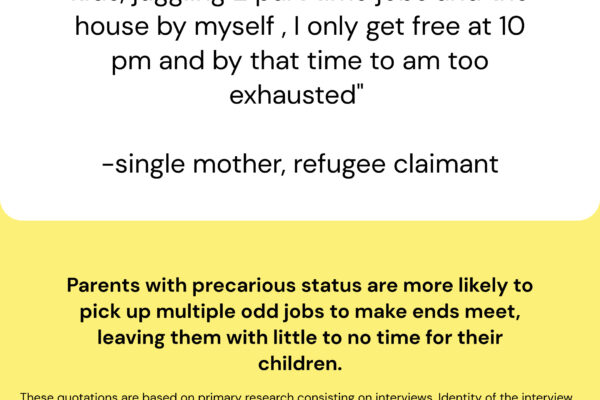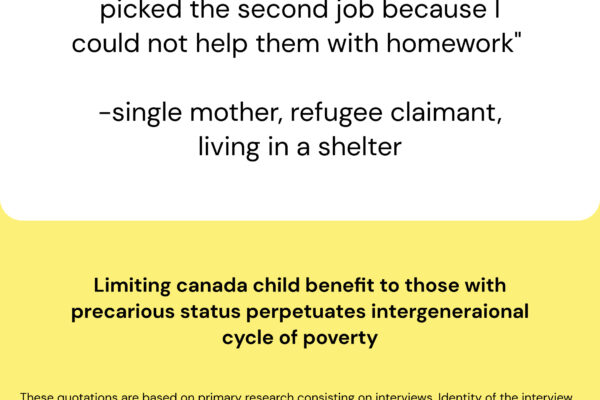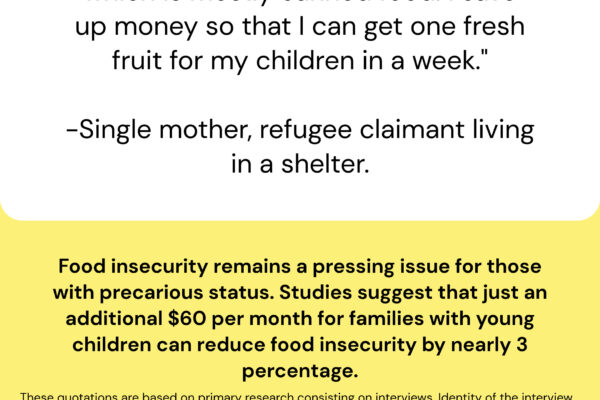About the Policy
Canada Child Benefit is a tax-free monthly payment provided to low-income families with children under the age of 18. This benefit was introduced in 2016, replacing the Universal Child Care Benefit and Canada Child Tax Benefit. The eligibility criteria is also restricted to Canadian citizens, permanent residents, protected persons, individuals registered under the Indian Act or temporary foreign workers who have been in Canada for at least the previous 18 months (1.5 years).
The preclusion of refugee claimants and those without immigration status (non-tourists) from receiving Canada Child Benefit for their children harms families that are Asian, South Asian, Arab, Hispanic, and Black. It is critical to understand this preclusion as a barrier to racialized communities and perpetuates poverty in these communities. The report titled “Every Child Counts” says eligibility requirements for the Canada Child Benefit are discriminatory. It estimates that as many as 3,000 families are ineligible because they await refugee status or have had temporary resident status in Canada for fewer than 18 months. Among them are parents who are working and paying taxes.
Lived experience and community data show that this exacerbates child poverty for those who are already marginalized. It is harmful for children in these circumstances and it is argued that the CCB should be given to all children in Canada regardless of their parents’ immigration status.
How CCB Policy Shapes Lives
Impact of Canada Child Benefit eligibility criteria
Understanding the Impact
Who is truly affected by the Canada Child Benefit (CCB) policy’s eligibility criteria? The answer may surprise many. Contrary to common belief, ‘non-permanent status’ individuals in Canada encompass a wide array of immigration categories, not just refugees or undocumented people. This section sheds light on the diverse groups impacted, providing detailed profiles and statistics for each category. It’s crucial to remember that individuals with precarious status often face restricted access to healthcare, employment, and housing. The unavailability of CCB amplifies these challenges, adding to the stress faced by these communities.
What is precarious or non-permanent status?
Precarious status describes the challenging situation of individuals living in a foreign country without permanent immigration status. This includes those who’s immigration status is: – study permit, – work permit, -asylum seeker – temporary foreign worker. In Canada, folks with precarious status are referred to as “”non-permanent residents.
Those with precarious status face hurdles such as limited legal rights, lack of permanent residence, work restrictions, and dependence on others for permission to stay or work, making life uncertain.
Individuals with precarious status live with instability, insecurity, and a lack of access to fundamental resources like housing, education, healthcare, and employment.
Precarious Status Categories
Canada provides many different immigration pathways for people around the globe which means many different immigration statuses are also provided. With these varying immigration statuses, people are also given different rights.
People may be in Canada for many different reasons, such as:
- Pursuing higher education to broaden their professional horizons
- Working in Canada to provide for their families back home or to build a career
- Fleeing persecution or conflict in their home countries or seeking a better future for their children in Canada
Regardless of their goal or status, immigrants contribute significantly to the economic, social, and cultural development of the country. This can include:
- providing labor to fill labor shortages
- contributing to the tax base
- contributing to the reduction of the average age demographic in Canada.
Various sectors in Canada depend on immigrant labor. These include agriculture, healthcare, food service industry, science and technology, sports, and arts and culture
While it may seem contrary, everyone in Canada is required to file taxes such as, if applicable, paying HST, property taxes, contributing to CPP, and income tax, which includes those on a work permit, study permit, or asylum but are not eligible for many federal benefits.
Debunking Myths
Confronting harmful stereotypes is crucial in understanding the challenges faced by those with precarious status. Living with precarious status forces individuals and families to live in a constant state of uncertainty. The realities of asylum-seekers, international students and work permit holders reveal difficult facts on access to essential services, financial hardships, and housing struggles. Click on each myth below to learn more.
Real Life Stories
Animations
Watch these animated stories bringing to life the experiences of individuals impacted by CCB.
Lina’s Story
English
Chinese
Punjabi
Talia’s Story
English
Chinese
Punjabi
Urdu
Arabic
Blog posts
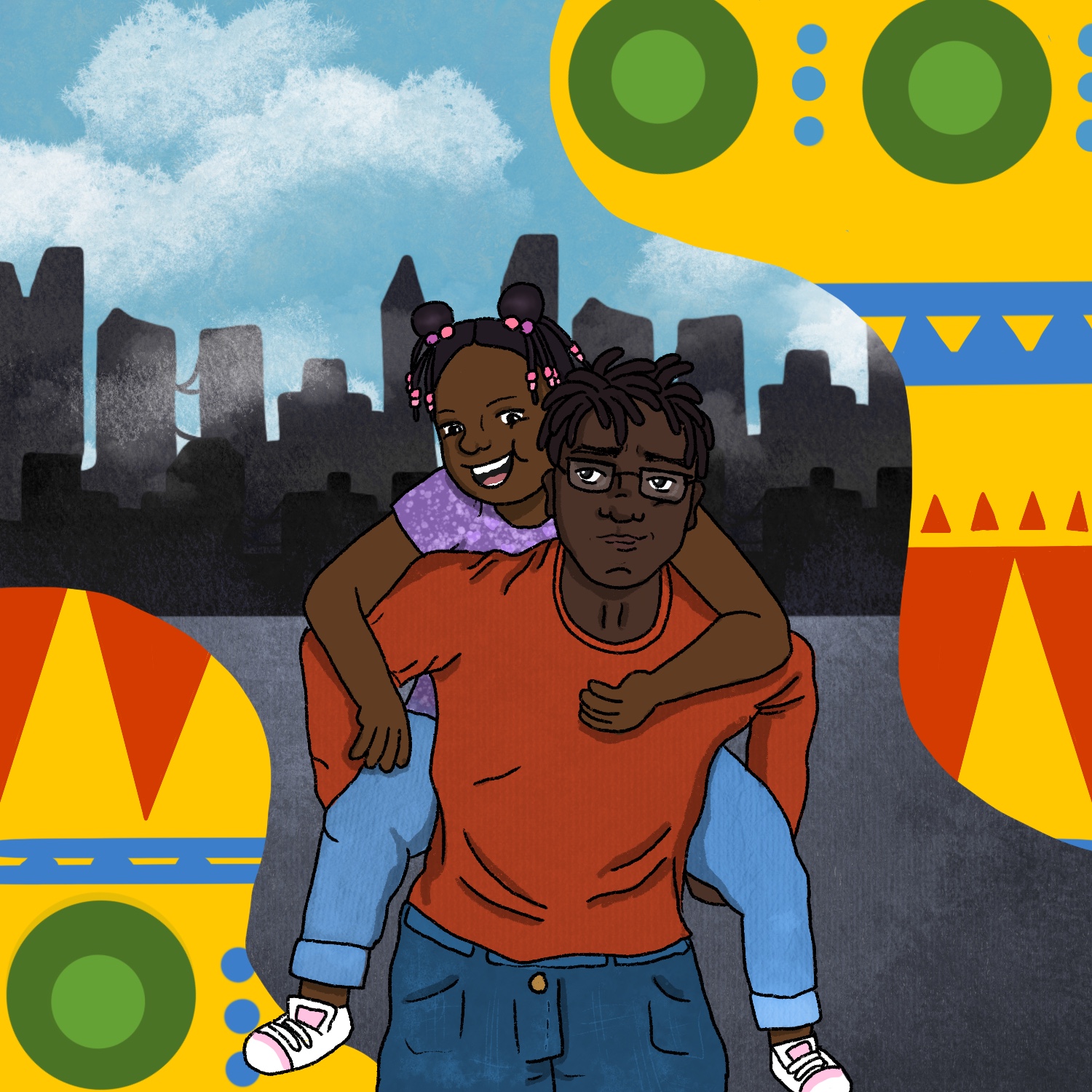
Joseph’s Story
When Joseph was just 10, he, his mother, and two siblings fled Ghana, escaping the shadows of gender-based persecution due to his mother’s marginalized status in the country. They arrived in Canada filled with hope, seeking asylum and a fresh start.
Four years on, the hope has dimmed. War in Ghana has claimed their assets, and their asylum status remains uncertain. Joseph’s mother, burdened by her limited English…









